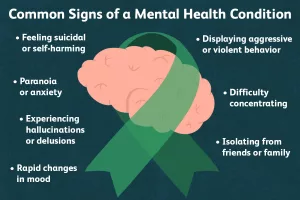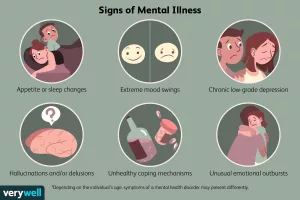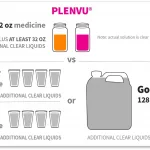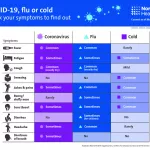Do you think you know a narcissist? Or maybe you’ve caught yourself wondering if you might be one? It’s a query which could forestall you to your tracks, mainly in case you’ve ever crossed paths with someone who seems to assume the sector revolves round them. Narcissism receives thrown round plenty these days—on social media, in informal conversations—however what does it definitely imply? And could there really be a way to spot it with just one simple question?
I’ve got a story for you. My friend Leilani is the type of man or woman who lighting up a room. She’s confident, charismatic, and constantly has a tale to tell. But over time, I commenced noticing a few quirks. Like the time she insisted on skipping the line at a concert because, in her words, “I’m not waiting with everyone else.” Or how she’d brush off my bad day to talk about her latest triumph. It got me thinking: is this just her personality, or could it be something more—like narcissism? Turns out, there’s a surprisingly easy way to get a clue.
Researchers have come up with a single question that might just cut through the noise: “To what extent do you agree with this statement: ‘I am a narcissist.’ (Note: The word ‘narcissist’ means egotistical, self-focused, and vain.)” You answer on a scale from 1 to 7, and believe it or not, this little test can tell you a lot. In this article, we’ll unpack how it works, dive into the 12 tendencies of a narcissist, and explore what all of it manner for you or the human beings for your life. Let’s get commenced!
What’s This Single-Question Test All About?

Okay, let’s break this down. The single-question test is officially called the Single Item Narcissism Scale (SINS). It’s as simple as it sounds: “To what extent do you agree with this statement: ‘I am a narcissist.’ (Note: The word ‘narcissist’ means egotistical, self-focused, and vain.)” You rate yourself from 1 (not at all like me) to 7 (totally me). That’s it—no long quizzes or tricky wording.
But does it actually work? Yep, according to science, it does. A study published in PLOS ONE found that this one question holds up against bigger tests like the 40-question Narcissistic Personality Inventory (NPI). Why? Because narcissists tend to be pretty upfront about who they are. They don’t see being self-centered or vain as a flaw—they may even brag approximately it.
Picture this: someone who’s usually chasing the spotlight may think, “Of course I’m a narcissist—I deserve the attention!” That’s the secret sauce right here. Unlike most personality quirks, narcissists regularly put on their traits like a badge of honor. So after they solution this query, they’re no longer shy approximately pronouncing, “Yeah, that’s me.” Pretty wild, right?
Now, a quick heads-up: this isn’t a golden ticket to diagnosing Narcissistic Personality Disorder (NPD). That’s a serious condition that needs a pro—like a therapist or psychologist—to figure out. But as a quick gut check? The SINS can point you in the right direction.
Getting to Know the 12 Traits of a Narcissist

To really get why this single question packs a punch, we need to zoom in on what makes a narcissist tick. It’s not just about snapping selfies or loving the mirror (though that can play a part). Narcissism is a whole personality package, and it comes with some distinct traits. While the DSM-5—the big book psychologists use—lists nine official criteria for NPD, lots of experts expand that to 12 traits to give us a fuller picture.
These 12 traits of a narcissist are like puzzle pieces. They show up in different ways, but together, they create a clear image of narcissistic behavior. Let’s lay them out in a table so you can see what I mean—and maybe spot some examples from your own life.
The 12 Traits of a Narcissist: A Handy Table
| Trait | What It Looks Like |
|---|---|
| Gross Sense of Entitlement | They think they deserve the VIP treatment everywhere—like cutting in line or expecting favors just because they’re “special.” |
| Need for Admiration or Attention | They crave praise like it’s oxygen. Think fishing for compliments or hogging every conversation. |
| Lack of Empathy | Other people’s feelings? Not their problem. They might shrug off your tears to talk about their day instead. |
| Fragile Self-Esteem | Big confidence on the outside, but one tiny criticism can send them spiraling. It’s all about needing that outside approval. |
| Feelings of Arrogance & Superiority | They’re convinced they’re better than you—and they’ll let you know it, subtly or not. |
| Manipulative & Exploitive Behavior | Using people like pawns to get what they want—think guilt trips or little white lies. |
| Envy & Belief in Others’ Envy | Jealous of your wins but also sure you’re jealous of them. It’s a weird mix. |
| Obsession With Power & Success | Always chasing the next big thing—money, status, control—sometimes stepping over others to get there. |
| Lack of Boundaries | Your time, space, privacy? They don’t care. They’ll barge in whenever they feel like it. |
| Emotional Volatility | One minute they’re on top of the world, the next they’re raging because someone bruised their ego. |
| Fear of Loss or Rejection | Deep down, they’re terrified of being left or ignored, so they might cling or control. |
| Relationship Issues | Selfishness and drama make it tough to keep friends or partners happy. People end up feeling used. |
So, there you have it—the 12 traits of a narcissist in a nutshell. Seeing them laid out like this might spark some “aha” moments. Maybe you’re thinking of that coworker who flips out over feedback or a family member who always needs to be the star. But here’s the thing: having one or two of these doesn’t make someone a narcissist. It’s when these traits pile up and take over their life that it’s a red flag.
How Does the Single Question Tie Into These Traits?
Alright, permit’s connect the dots. How can one little question—“I am a narcissist”—inform us about these types of 12 traits? It’s all about how people see themselves. When someone rates that statement high, they’re basically saying, “Yep, I’m self-focused and proud of it.” And that self-view lines up with a bunch of those traits we just talked about.
The research backs this up. That PLOS ONE study showed the SINS matches up with the NPI, which digs into traits like entitlement, needing admiration, and being manipulative. So if someone’s cool with calling themselves a narcissist, chances are they’re ticking off a lot of those 12 boxes—like arrogance, a hunger for attention, or even that sneaky lack of empathy.
Here’s why it’s so clever: narcissists don’t usually hide from their traits. Where you or I might feel bad about being selfish, they’re like, “Selfish? Nah, I’m just important.” That’s why the question works—it catches them in their own game. But it’s not perfect. Some folks might not get what “narcissist” means, or they could be too ashamed to admit it. That’s where the pros come in for the full scoop.
The Upsides and Downsides of Narcissistic Traits
Now, let’s flip the script for a sec. Narcissism gets a bad rap—and yeah, it can be a wrecking ball in relationships—but some of these traits aren’t all bad. Take that confidence and obsession with success. In the right dose, they can push someone to do amazing things. Think of a bold CEO or a fearless artist—those 12 traits of a narcissist might just fuel their fire.
For instance, that need for admiration can make someone a killer public speaker. They thrive on the applause and work hard to earn it. Or that sense of entitlement? It might give them the guts to demand a raise or chase a dream others wouldn’t dare. In small bursts, these can be superpowers.
But here’s the catch: too much of a good thing turns sour fast. That lack of empathy can leave friends feeling like props in their personal movie. The manipulation? It might win them a deal, but it’ll lose them trust. And don’t get me started on the emotional rollercoaster—when their fragile ego takes a hit, everyone around them feels the fallout.
So, it’s a balancing act. If you’ve got some of those developments, they may help you shine—simply don’t allow them to run the display. And in case you’re coping with a narcissist, understanding these united states of americaand downs can help you set obstacles or decide when to walk away.
Wrapping It Up: What’s the Takeaway?
So, can you really spot narcissism with one question? Kind of! The SINS—“I am a narcissist”—is a neat trick to get the ball rolling. It’s quick, it’s simple, and it’s surprisingly solid at picking up on the 12 traits of a narcissist. But it’s not the whole story. For the real deal, like an NPD diagnosis, you need a pro to weigh in.
Still, this single question is a great way to start thinking about narcissism—whether it’s in you or someone else. Those 12 traits we covered? They’re your roadmap to understanding what’s going on. Maybe you’ve seen them in Leilani-style line-cutters or spotlight-hoggers in your own life. Recognizing them can be eye-opening.
If you’re seeing a whole lot of these trends in your self and it’s bugging you, don’t sweat it—speakme to a therapist can help you type it out. And in case you’re on the receiving cease of narcissistic conduct, assist companies or counseling can give you equipment to manage.
At the end of the day, this isn’t about pointing fingers—it’s about understanding. Narcissism is messy, human, and way more common than we think. Got a story or a question approximately it? Drop it in the comments—I’d love to listen from you!

























Leave a Reply
You must be logged in to post a comment.